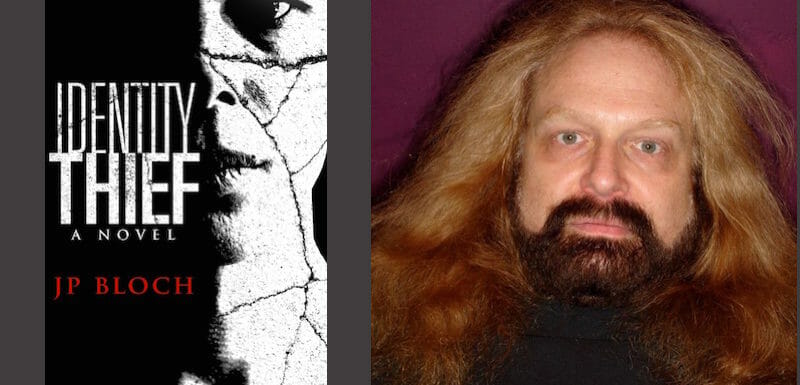 According to JP Bloch, the author of “Identity Thief,” identity theft is the fastest growing crime in the country. In this interview, Bloch discusses his experience as an identity theft victim and how that experience played into the writing of his second book.
According to JP Bloch, the author of “Identity Thief,” identity theft is the fastest growing crime in the country. In this interview, Bloch discusses his experience as an identity theft victim and how that experience played into the writing of his second book.
When he decided to write a novel, Bloch wasn’t sure what “topic” to write about. Despite his knowledge of the statistics about identity theft, Bloch felt he needed another opinion. He said, “I can be a bit indecisive about these things, so I made a list of possible topics for a novel, and a literary agent selected this one, which I took as a good omen. Once I started writing it, I recognized that this was an ideal vehicle for getting at an inescapable duplicity in human relationships that has long fascinated me.
“I myself became a victim of identity theft in the course of writing the book. As a writer you learn to apply your experiences to what you write. Someone filed a bogus tax return in my name. The IRS was helpful, but still, making a dozen calls to the IRS, getting put on hold, being told to call another number, and mailing out forms, is not anybody’s idea of a good time. I still don’t know who did it, or how they got hold of my social security number and W-2.”
Bloch also has a more philosophical view on the subject of identity theft. “The two words of the title are important,” he said. “We all have a sense of who we are, but it may not be how other people see us, and we all too often let ourselves be ‘stolen’ by the expectations of others. In this figurative sense everyone is an identity thief, and also a victim of identity theft.”
In “Identity Thief,” the thief and victim take turns telling the story. Bloch said, “We see their interior selves up close, which often do not match the selves they present to the world. Often we believe we are close to people who actually know little if anything about what we genuinely think or feel. My novel dramatizes this in the form of a psychological crime thriller.”
Bloch believes that to connect to another person, one must be part idealist and part cynic, then hope for something genuine to emerge from all the compromises and half-truths. He demonstrates this opinion in the book. “I’m a big fan of film noir,” said Bloch. “So expect noir-ish characters. No one is all that nice, and in fact the victim of the theft is pretty creepy. You’ll probably like the thief better. But don’t expect anything to be what it seems. There are a lot of twists and turns in the plot.”
With explicit language, adult situations, and violence, Bloch understands that “Identity Thief” will not appeal to all readers. Anyone who has ever been the victim of a crime knows that the crime itself can often set off a cascading series of consequences. Bloch understands this because the real theft of his identity had such an effect when someone tried to file a workplace injury claim in his name after the original crime.
“That was more red tape,” Bloch said. “I love to write and I’m also a college professor, so I treasure my free moments. It’s a drag when I have to spend them listening to recorded messages on the phone that tell me how important my call is and to please stay on the line. Now any time I get even an email that seems irrelevant to me, I wonder if it has to do with my identity theft.”
Because the thief and victim alternately narrate chapters in “Identity Thief,” Bloch felt the need to find the voice of each character while maintaining a consistent writing style. He said, “I’m not the first person to say this, but I do believe that when you write fiction your characters take on a life of their own, and as author you record what they do rather than dictate what they do. I was not as bent out of shape as the victim in the novel, but I understand something about his frustration, rage, and sense of personal violation.”
For more information
Learn more about JP Bloch on his blog at jpblochauthor.blogspot.com.


Excellent posting today, thanks so very much.
Thanks Marjorie, I’m glad you liked it.